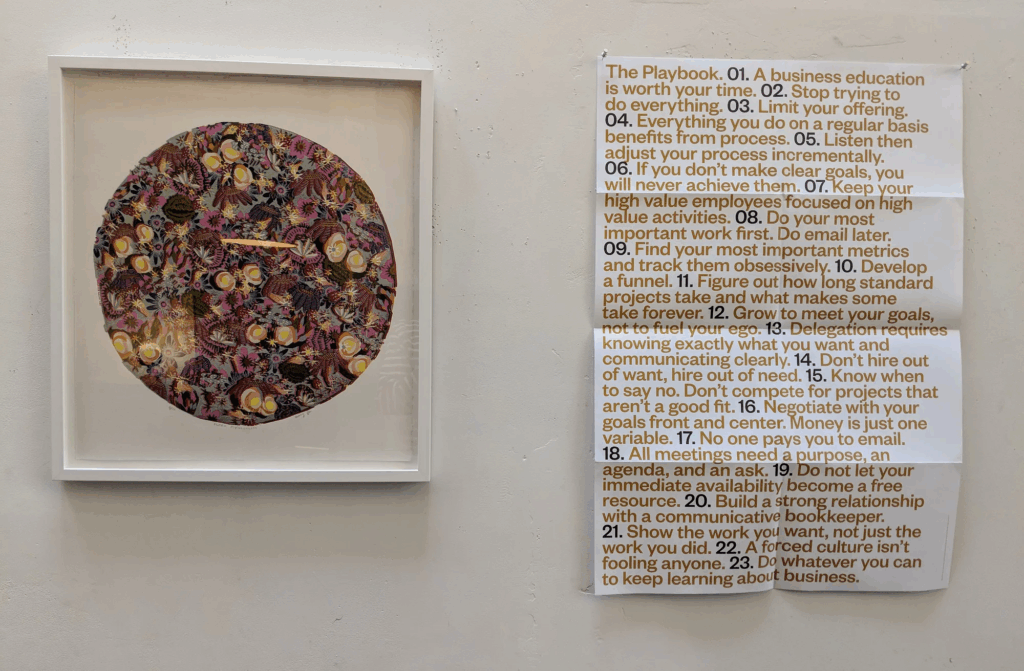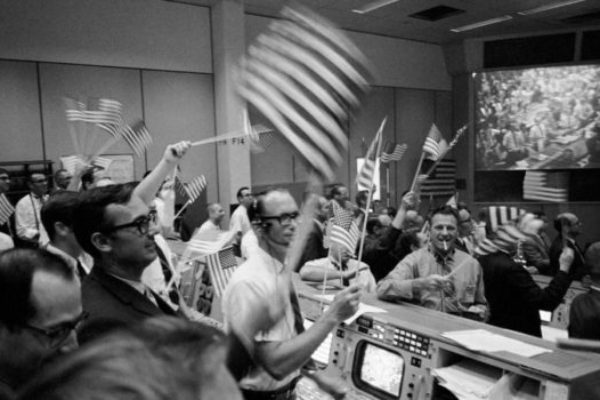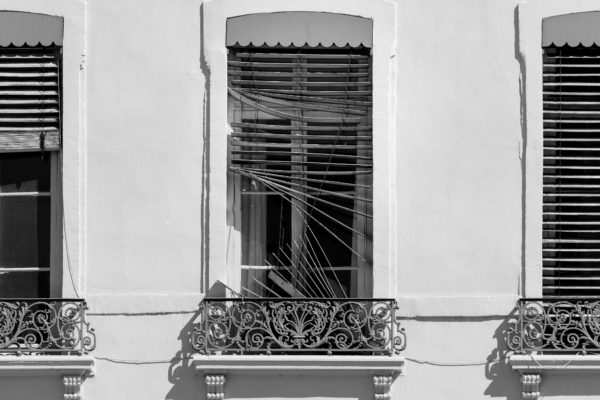The secret habits of a highly-effective slacker

If I’m being honest, I’ve never really worked that hard. I never pulled an all-nighter at school. I’ve never stayed at work until midnight editing a presentation. I used to feel bad about this — if I really cared about my work why am I not giving everything to it? I kept hearing people talk about how busy they were. Super busy. Crazy busy. I lied and said “totally, me too.” The confusing part was that I loved my work. I still do. I love naming. I love writing. I’m as interested and engaged in these pursuits as I was when I started at A Hundred Monkeys a decade ago. Shouldn’t I be spending 8+ hours a day honing my craft, hustling and grinding?
No thanks. I’d rather be ruthlessly efficient than ruthlessly committed. Most days I get to work a little before eight and head home between one and two in the afternoon. When I have a writing project I write in the afternoon. When I don’t, I don’t. I never work in the evening. Somehow this has been enough time to grow a thriving studio, write four books, and do a handful of passion projects.

Here’s how I get it done
1. I schedule my weeks and days in advance
Every Monday morning I plan out my week in my notebook. I start with my goals for the week, estimate how long they will take me, and block off this time on my calendar. Once I’ve scheduled my most important work, I go day-by-day, writing down the meetings and presentations I have. Every morning I will check and update what I need to get done that day. When I check everything off, I leave. I check email and Slack once in the afternoon to make sure I didn’t miss anything.
Influences:
Bullet Journaling
It doesn’t have to be crazy at work
The ‘busy’ trap
Schedule Blocking
2. I’ve become allergic to distraction
If there’s one thing I do work really hard on, it’s not getting distracted. I work hard on it because it actually takes practice and commitment. I haven’t had Facebook for about a decade. I quit Instagram cold turkey. I look at Twitter in-browser once a week. I made my phone as boring as possible — most notifications are turned off or batched. Apps I waste time on are deleted. I check my email only a few times a day. I write in Sublime Text, usually with Wi-Fi off. All of these communication “tools” are great ways to turn a six hour day into a nine hour day without giving you anything in return. Multitasking and task switching, even momentarily, robs you of focus and negatively affects the quality and efficiency of your work. I owe this realization to author and Georgetown computer science professor Cal Newport. I was reading his book, Deep Work, while working on my book, Run Studio Run. The productivity gain was blindingly obvious. I’m never turning back.
Influences:
Deep Work
Digital Minimalism
Mindfulness-based stress reduction
3. I split up collaborative work and solo work
Work is a variety pack of activities: Reading, writing, listening, meetings, presentations. It’s easy to let your calendar become your boss if you aren’t intentional about how you spend your time. You end up with little 15 minute gaps between meetings where you try to get a little solo work done or, more likely, realize it’s futile and scroll Instagram. Schedule blocking, or deciding what type of work you want to do when is a great way to limit task switching and let you focus on one type of work at a time. The biggest line I draw in the sand here is the split between collaborative work and solo work. For me, collaborative work happens between 9am and 2pm. Solo work happens before or after. Good creative work doesn’t happen in 30 minute increments.
I know that very few people have total control of their schedules and sometimes meetings just pop up. Don’t let this stop you from taking control where you can. Blocking off time to focus on your biggest priorities benefits everyone. Clearly communicating your priorities and availability to your colleagues and clients goes a long way here.
Influences:
Rework
The E-Myth revisited
Maker‘s schedule, manager’s schedule

4. I know when I’m productive
It’s obvious that not everyone works the same way or is productive at the same times. I have a friend who’s most productive between midnight and 4am. This sounds like a fucking nightmare to me. I’m most productive in the mornings. Schedule blocking helps me make sure I use my best working hours on my most important activities. I can email or check in on projects when I’m feeling unmotivated but I can’t do generative work. I’ve also learned that I’m practically useless in the 2–4pm range. I was happy to learn that I wasn’t alone in this realization.
“Three o’clock. Three o’clock is always too late or too early for anything you want to do. An odd moment in the afternoon.”
–Jean Paul Sartre
So instead of fighting it, I give in and go for a walk. This recharges me for writing in the afternoon if I have it. If I’m done with work for the day the walk acts as a great transition from working to not working. I never work in the evenings. I know I need to spend time not thinking about work. It’s beneficial for work, which I can approach with fresh eyes in the morning. It’s also beneficial for my sleep and sanity. It’s hard to go to sleep when you have work on your mind and you need good sleep to do good work. To that end, I sleep with my phone on silent in a place where I can’t reach or see it.
Influences
A guide to the good life
5. I budget and invest so I can work even less
We work because it’s fulfilling but we also work because it makes money. While money can buy all sorts of things, the most important thing it can buy is your freedom from work you don’t want to do. I stick to a budget so I know what my lifestyle costs. I save and invest almost everything I don’t spend. I use the 4% rule to roughly track my progress. I’m not trying to retire early. I can handle about 3 days on a beach before I need to be productive again. I really do enjoy my work. I just want to make sure I’m progressing towards the work I truly want to be doing—the work I’m happy to spend time and energy on. Increasingly this means working on projects that focus on social equality and making the world a better place for all plants and animals, including humans–because branding is absolutely pointless if our planet is uninhabitable.
Influences:
Mr. Money Mustache
I will teach you to be rich
Your money or your life


